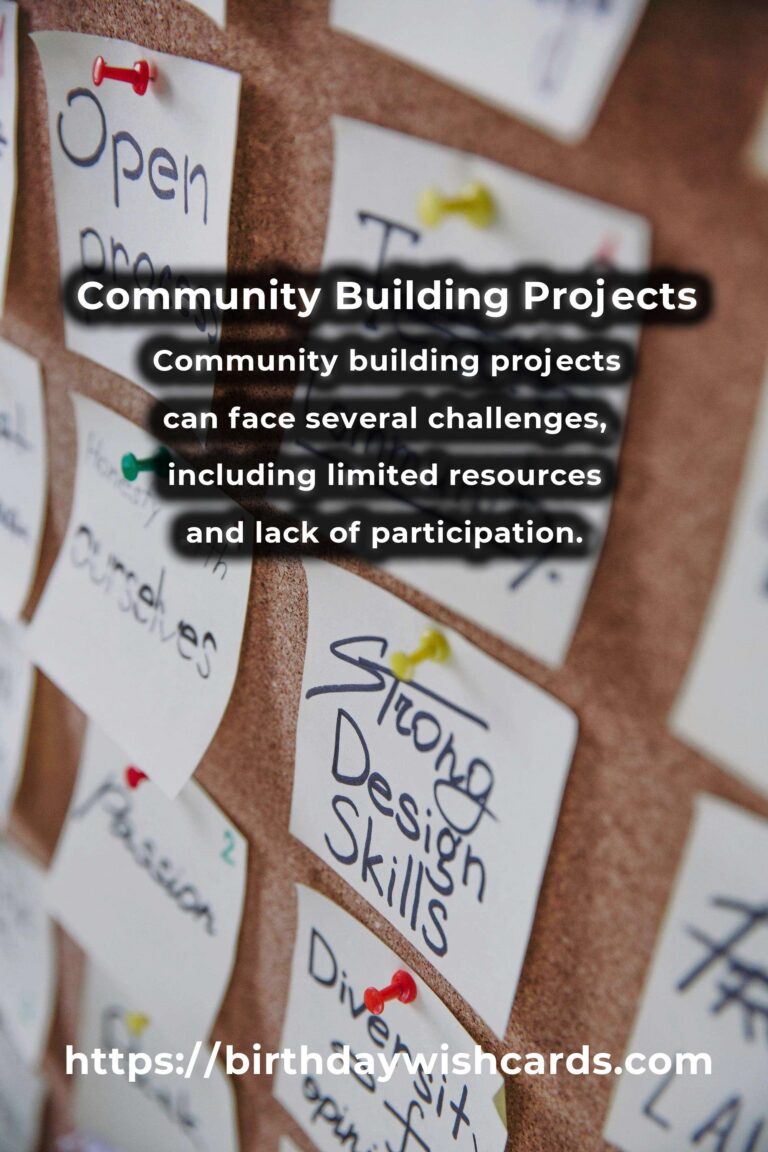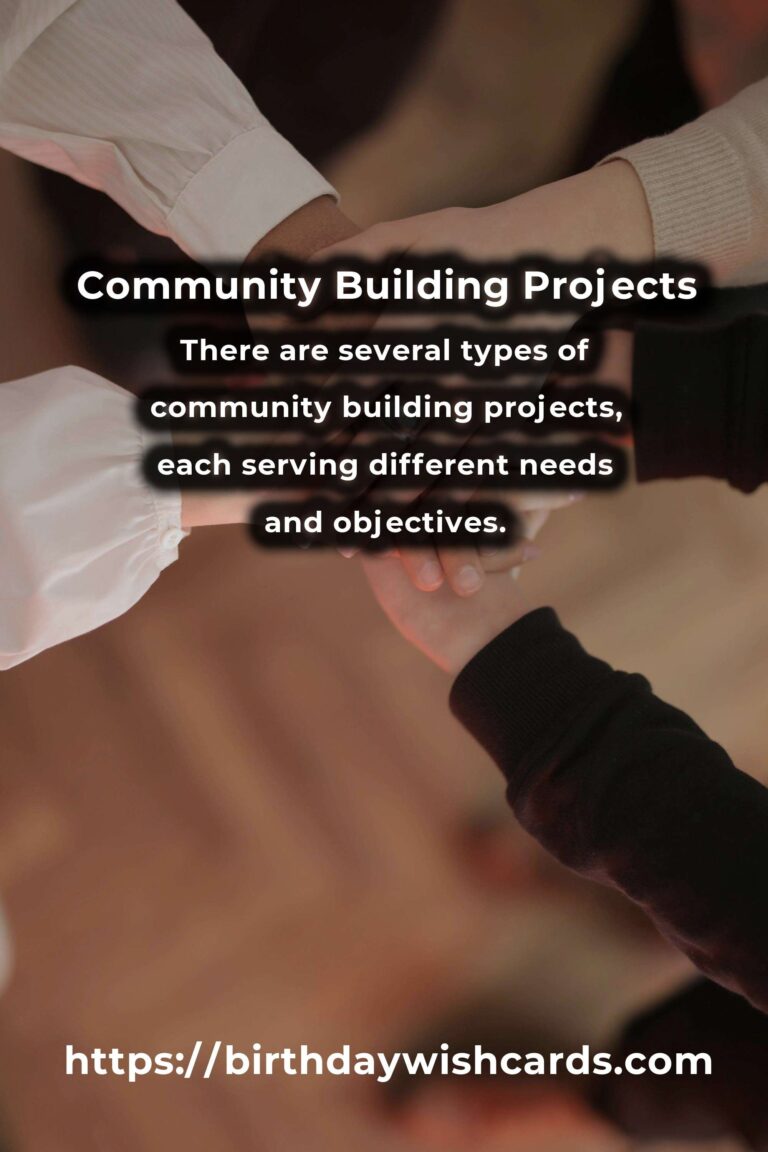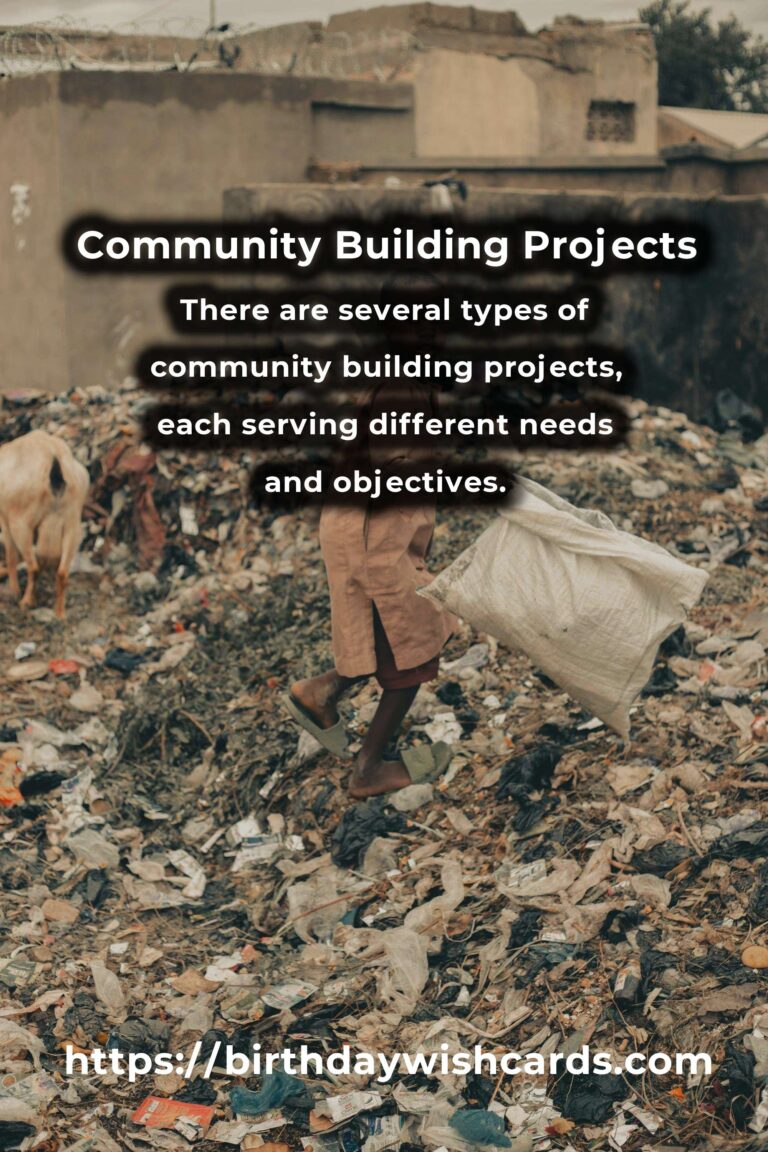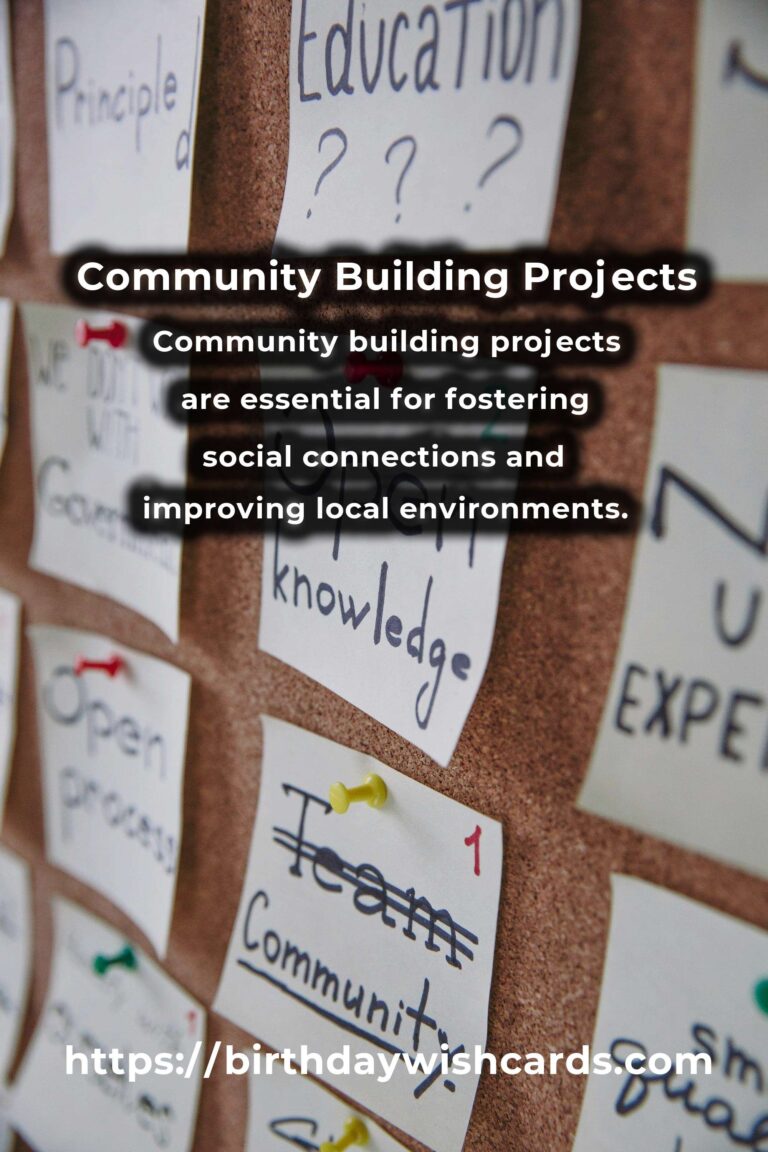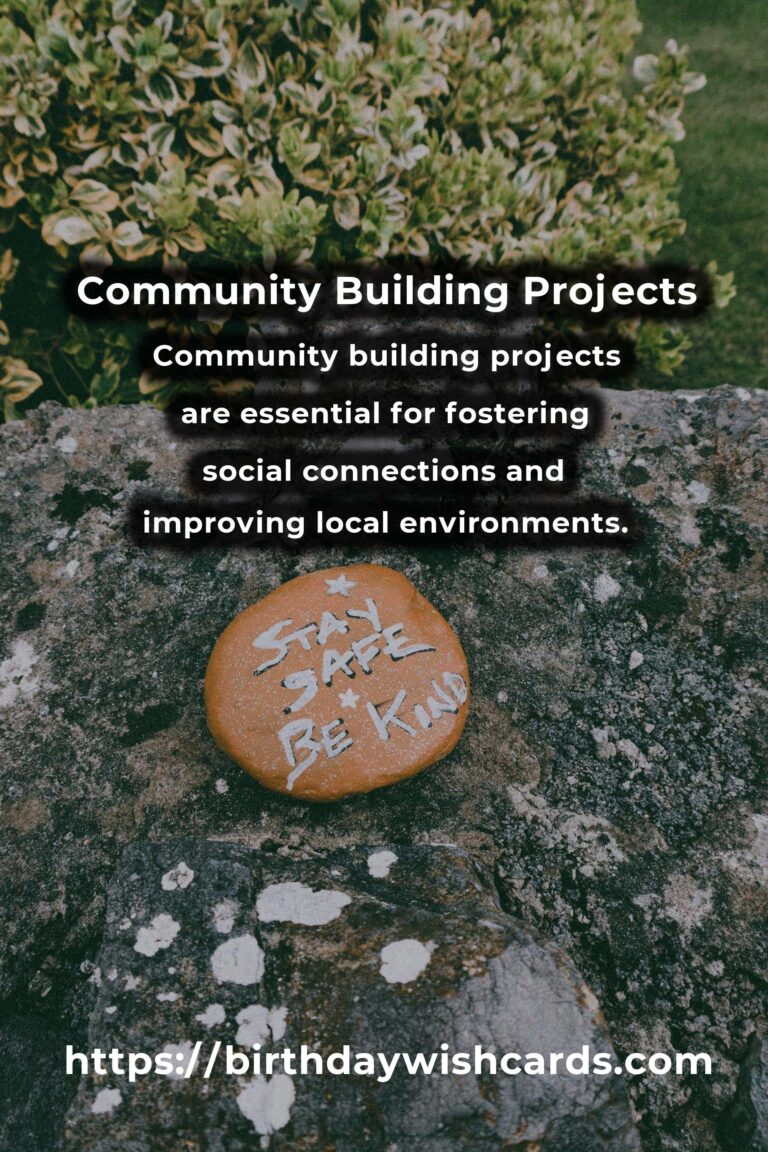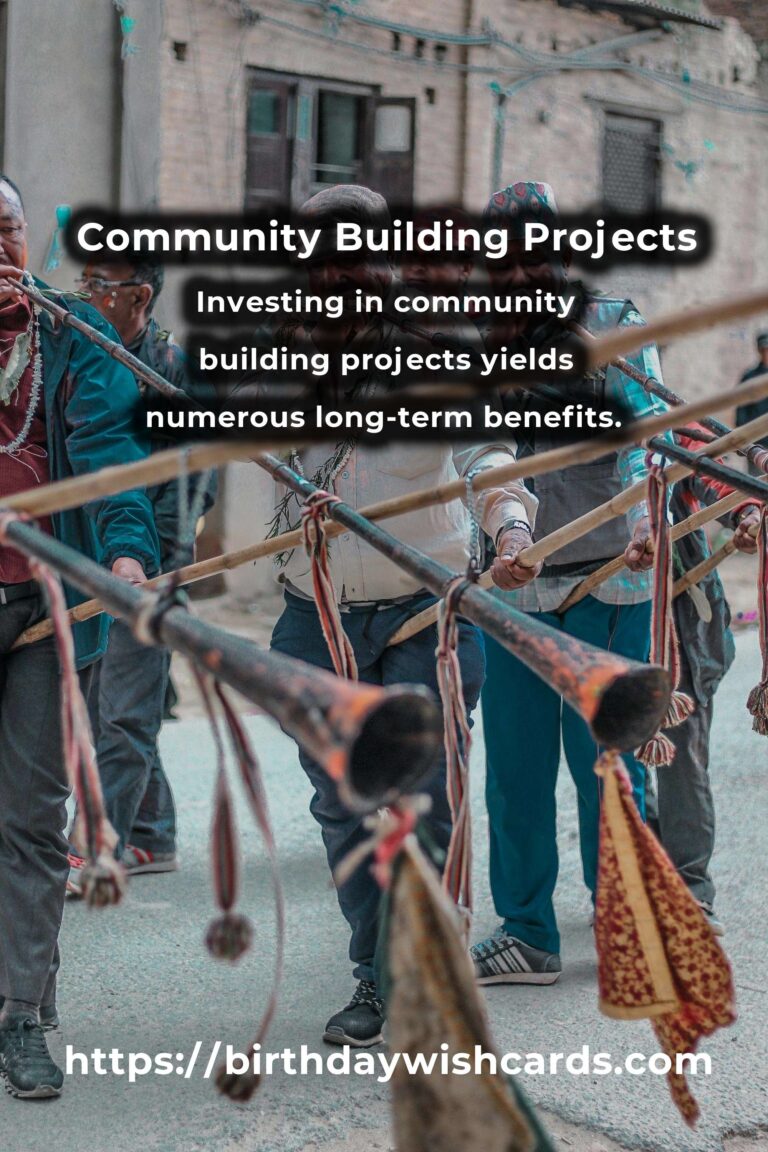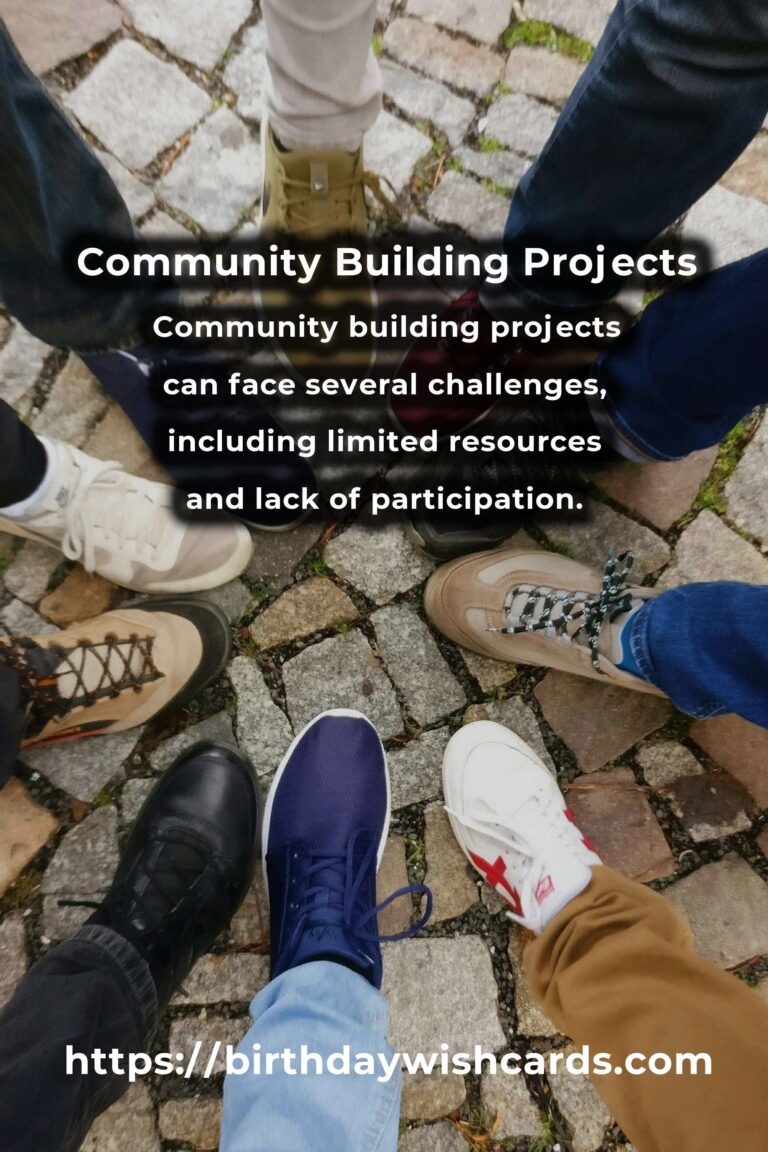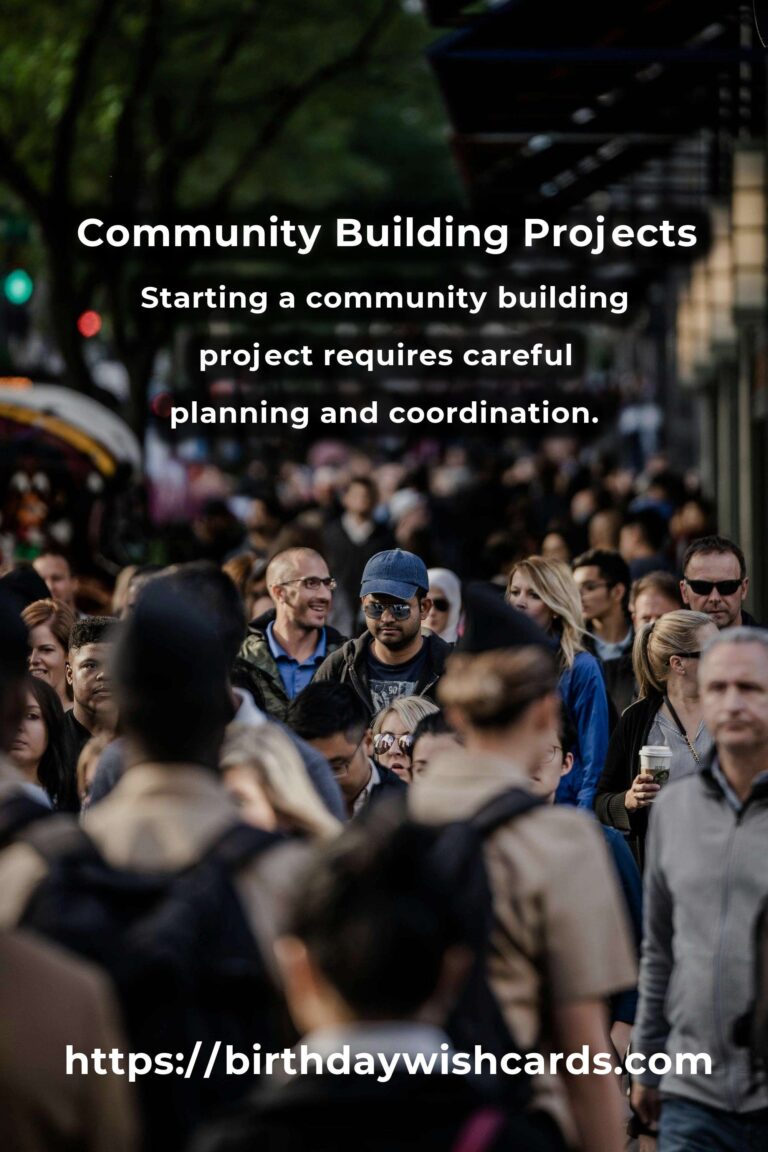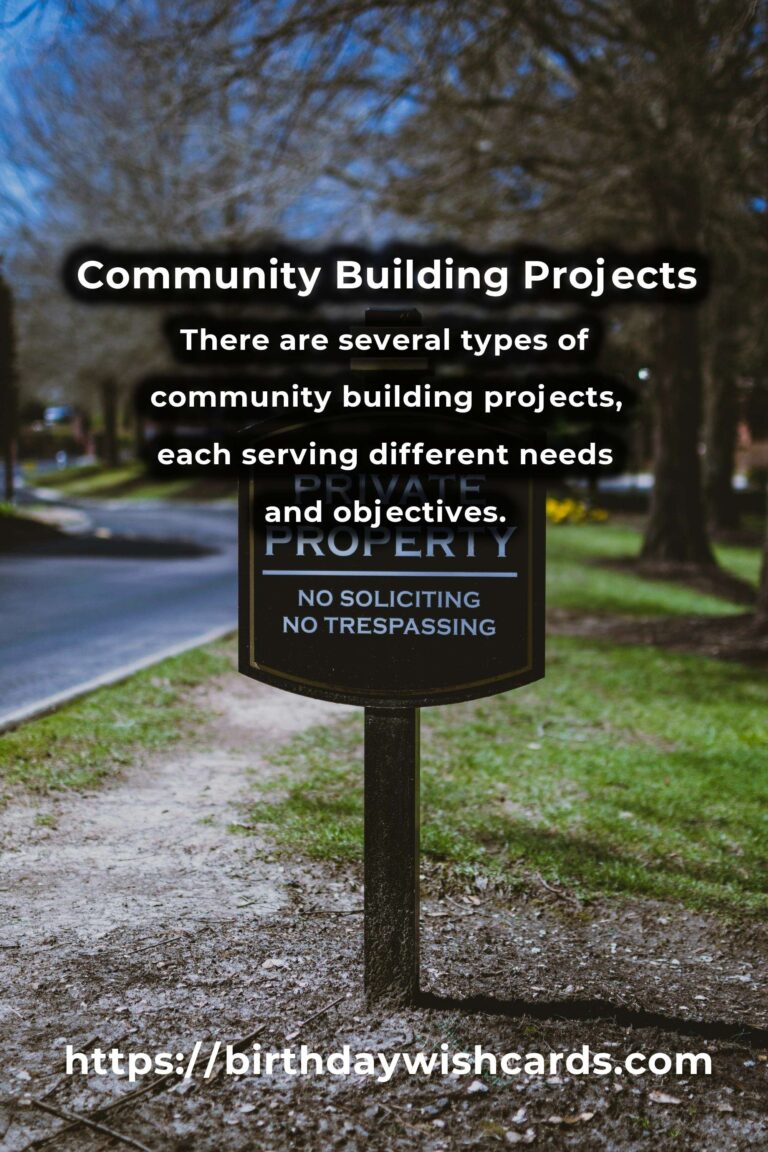
Community building projects are essential for fostering social connections, improving local environments, and creating a sense of belonging among residents. Whether you are a local leader, a community member, or an organization aiming to make a difference, understanding how to initiate and sustain these projects is vital.
Understanding Community Building
Community building refers to the process of creating or enhancing a sense of community among individuals within a specific area. This can involve various activities that promote interaction, cooperation, and shared goals.
The importance of community building cannot be overstated. It encourages civic participation, supports local economies, and enhances the quality of life. Moreover, it can lead to the development of robust support networks that are beneficial in times of crisis.
Types of Community Building Projects
There are several types of community building projects, each serving different needs and objectives. Here are some common types:
- Community Gardens: These projects bring people together to grow food and flowers, promoting healthy eating and environmental stewardship.
- Neighborhood Clean-Ups: Regular clean-up events help maintain a clean and safe environment while fostering a sense of pride among residents.
- Public Art Installations: Art projects can beautify a neighborhood and reflect the unique culture and identity of a community.
- Local Festivals and Events: Organizing events can bring people together to celebrate, learn, and enjoy shared experiences.
- Skill Sharing Workshops: These workshops can empower residents by teaching new skills and encouraging collaboration.
Steps to Initiate a Community Building Project
Starting a community building project requires careful planning and coordination. Here are the essential steps:
Identify the Community’s Needs
Begin by understanding the specific needs and interests of your community. Conduct surveys, hold meetings, and engage with community members to gather insights.
Define the Project’s Goals
Once you have identified the community’s needs, set clear and achievable goals for your project. This will guide your planning and execution efforts.
Form a Team
Build a team of passionate individuals who are committed to the project’s success. Assign roles and responsibilities to leverage the strengths of each team member.
Develop a Plan
Create a detailed plan outlining the project’s scope, timeline, budget, and resources required. Consider potential challenges and develop strategies to address them.
Secure Funding and Resources
Identify potential sources of funding, such as grants, donations, or sponsorships. Additionally, reach out to local businesses or organizations for in-kind support or partnerships.
Execute the Project
With the plan and resources in place, begin executing the project. Ensure regular communication with stakeholders and project team members to stay on track.
Evaluate and Reflect
After the project’s completion, evaluate its impact and gather feedback from participants. Reflect on the successes and areas for improvement to enhance future projects.
Overcoming Challenges in Community Building Projects
Community building projects can face several challenges, including limited resources, lack of participation, and resistance to change. To overcome these obstacles:
- Foster Inclusivity: Ensure that all community members feel welcome to participate and contribute.
- Communicate Effectively: Maintain open lines of communication to keep everyone informed and engaged.
- Be Flexible: Be prepared to adapt your plans as needed to address unforeseen challenges.
- Celebrate Successes: Recognize and celebrate achievements to motivate continued involvement and support.
The Long-Term Benefits of Community Building
Investing in community building projects yields numerous long-term benefits. These projects can lead to increased social cohesion, improved mental health, and a stronger sense of community identity. Additionally, they can inspire future initiatives and foster a culture of collaboration and support.
In conclusion, community building projects play a crucial role in enhancing the lives of individuals and the welfare of the community as a whole. By understanding the process and overcoming challenges, you can lead successful projects that make a lasting impact.
Community building projects are essential for fostering social connections and improving local environments. There are several types of community building projects, each serving different needs and objectives. Starting a community building project requires careful planning and coordination. Community building projects can face several challenges, including limited resources and lack of participation. Investing in community building projects yields numerous long-term benefits.
#CommunityBuilding #LocalProjects #SocialCohesion #CommunityEngagement


